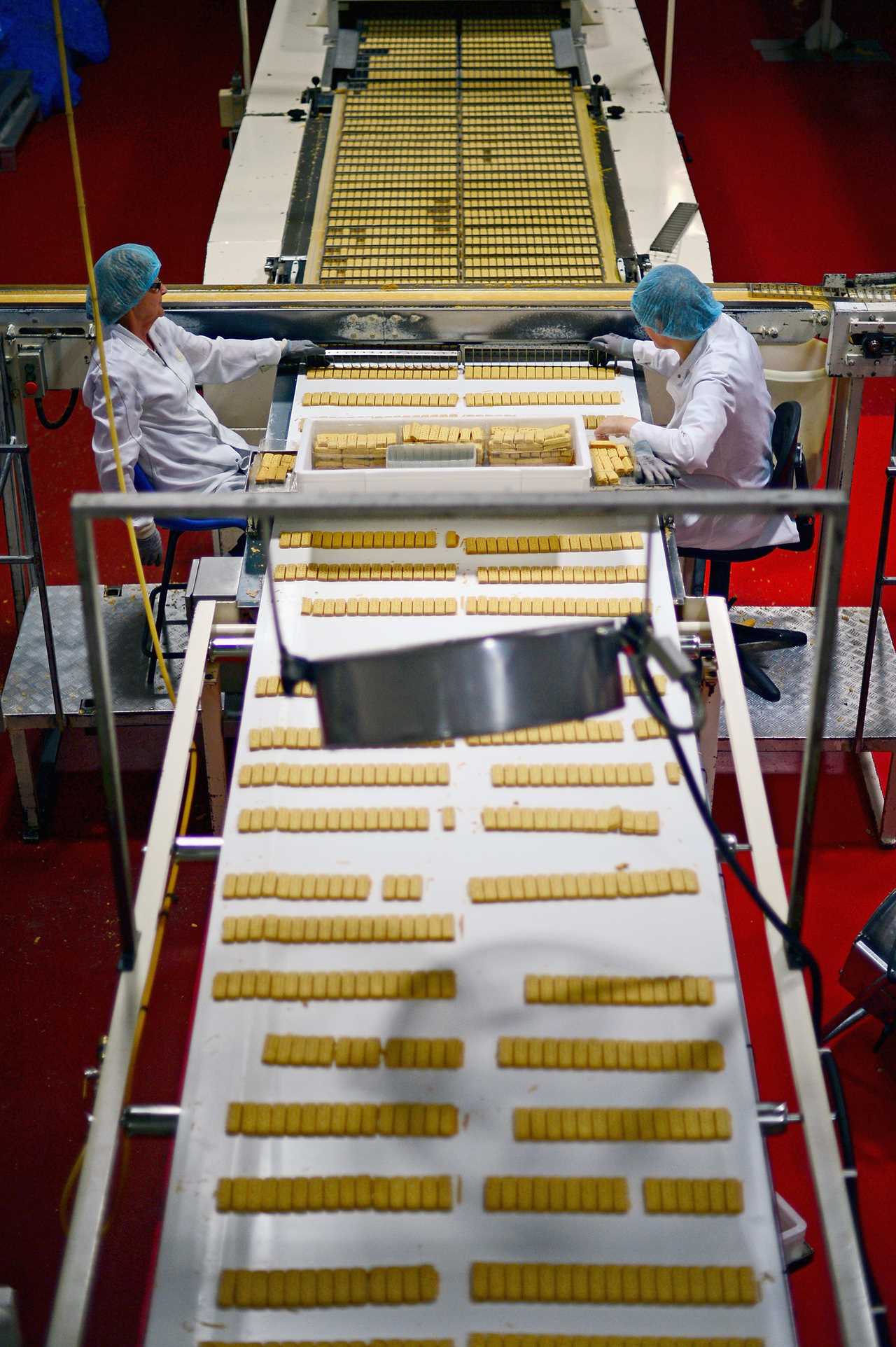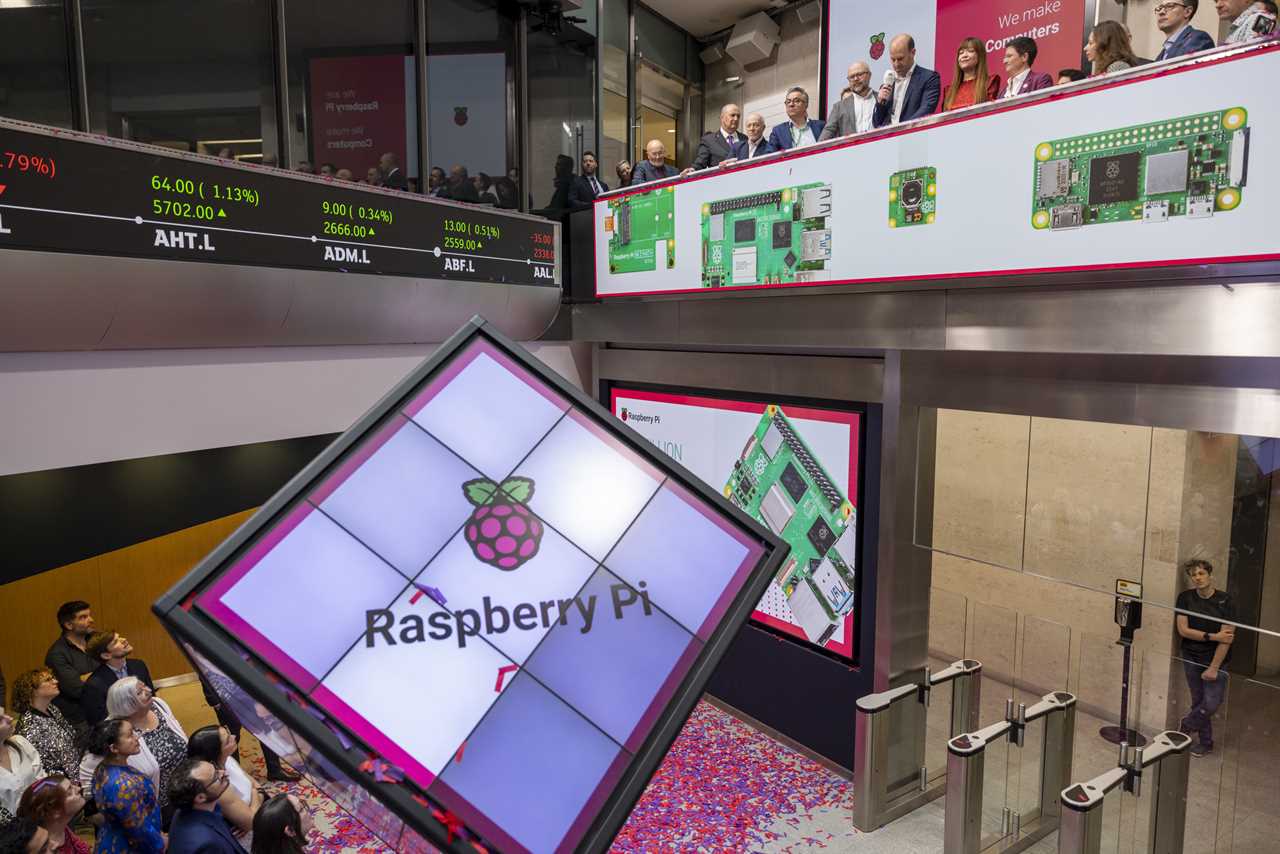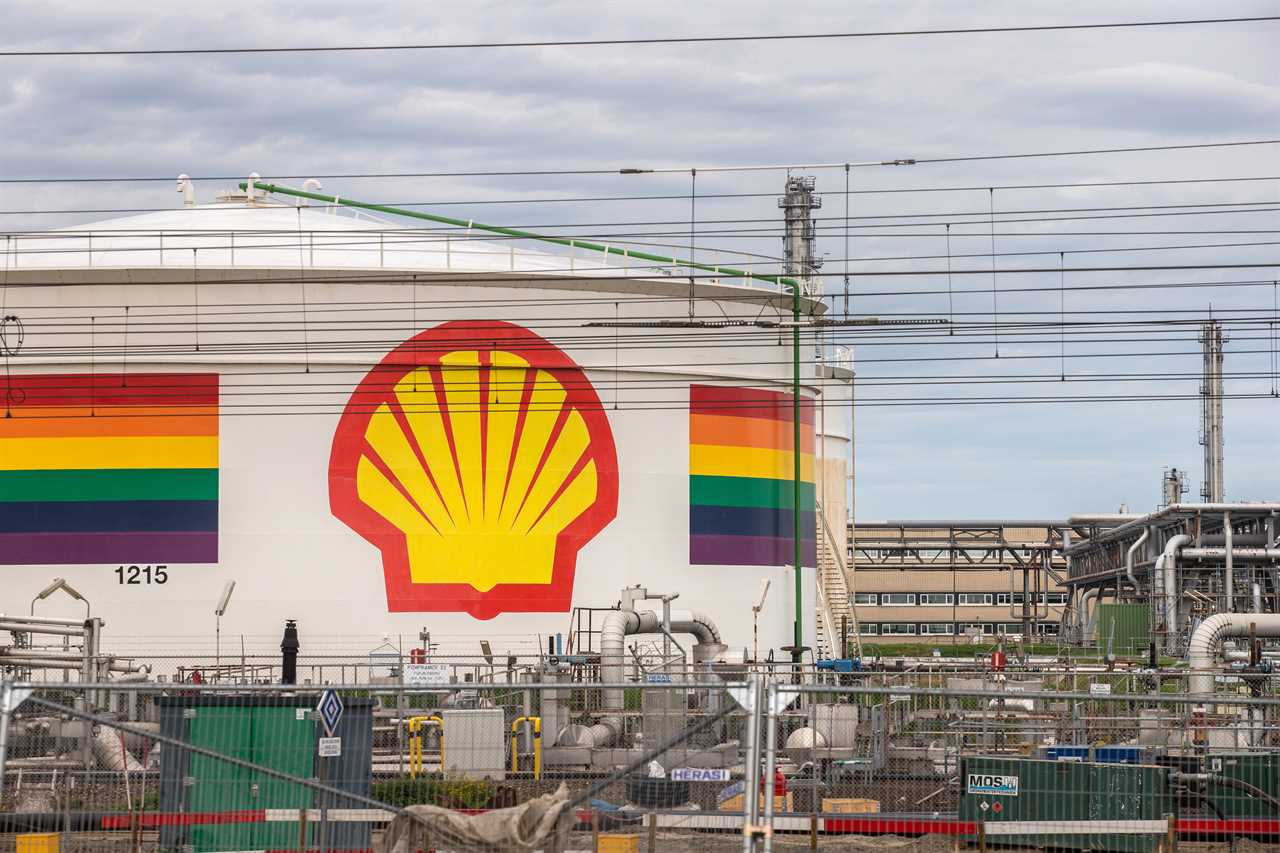
Food Giants Merge Amid Job Security Concerns
Employees at two leading ready-meal companies are anxious about their future following a £1.2 billion merger. Greencore, renowned as the UK’s top sandwich producer, has agreed to combine forces with Bakkavor, known for its hummus dips, pizzas, and desserts. This alliance will establish a powerhouse in the food industry, generating £4 billion in revenue by supplying a wide range of products, including salads, sushi, soups, quiches, and ready meals to nearly all major UK supermarkets.
The announcement led to a rise in Bakkavor's shares by 7.87% to 191.8p, while Greencore's shares experienced a modest increase of 0.90% to 180.20p. The merger will also provide a substantial £600 million payout to the founders of Bakkavor. However, workers are on edge as the companies anticipate cost reductions, citing significant potential efficiencies from their union. Eamon O’Hearn, a national officer from the GMB union, has urged the new entity to commit to preserving jobs and avoiding factory closures. With Greencore and Bakkavor together employing over 30,000 people, the integration comes at a time when both companies are grappling with increased staffing costs due to recent changes in employer National Insurance contributions.
Iconic Shortbread Maker Battles US Tariffs
Walker's Shortbread, a 127-year-old Scottish biscuit manufacturer, is facing uncertain times as US tariffs loom large. Nicky Walker, representing the fourth generation of the family business, expressed deep concerns over the potential impact of a 20% tariff on their exports. The Highlands-based firm has strategically expanded its presence in the American market, which now accounts for more than a quarter of its £38 million revenue. Walker emphasized the importance of maintaining production in Scotland, highlighting that relocating manufacturing would compromise the brand's identity and quality.
Despite hopes that personal connections, such as former President Trump's Scottish heritage, might aid in negotiations, Walker remains cautious. The company’s commitment to its Scottish roots is evident in its packaging and branding, making it unlikely to shift production abroad to evade tariffs.

Raspberry Pi's Profit Decline Post-Listing
The popular low-cost computer maker, Raspberry Pi, has reported a significant drop in profits following its initial public offering. The Cambridge-based company saw pre-tax profits decrease by 57% to £12.6 million. However, adjusted earnings of £28.8 million surpassed analyst expectations by half a million pounds. Sales experienced a slight decline of 2%, reaching £201 million for the year.
Raspberry Pi attributes the profit reduction to lingering effects from pandemic-related supply shortages but noted that these issues have now been resolved. The company also faced an additional £12.2 million in costs related to its recent listing. CEO Eben Upton highlighted that the £542 million listing has increased awareness of the company's offerings and opened up promising opportunities with equipment manufacturers.
Tesla's European Sales Take a Hit
Tesla is experiencing its steepest sales decline in three years, particularly in Europe, where registrations have plummeted by 43% in the last quarter. The electric vehicle manufacturer attributes the slump to a combination of factors, including consumer dissatisfaction linked to CEO Elon Musk’s associations with the Trump administration and increased competition from Chinese competitor BYD.
Analysts also point to delays in the launch of Tesla's updated Model Y as a contributing factor. The combined effect of these issues has led to a 13% drop in overall vehicle sales for the quarter, marking a challenging period for the automaker in the European market.

Shell Maintains Diversity Commitments Amid Policy Shifts
While many global companies have abandoned diversity, equity, and inclusion (DEI) initiatives in response to policy changes under the Trump administration, Shell remains steadfast in its commitment. Despite pressures to reduce green targets and diversity programs, Shell continues to uphold its DEI objectives, as detailed in its annual report. CEO Wael Sawan has reiterated the company's dedication to fostering an inclusive workforce, emphasizing that diversity is a key factor in Shell’s strategic advantage during the energy transition.
Similarly, BP has chosen to retain its DEI programs despite aligning more closely with the administration’s energy policies. BP's executive, Murray Auchincloss, formerly the company's race and ethnicity champion in the UK, supports maintaining these initiatives, highlighting their importance in building a resilient and adaptable organization.
Brighton Palace Pier Owner Exits London’s Junior Market
The Brighton Pier Group, owner of the historic Brighton Palace Pier along with several bars and mini-golf venues, has announced plans to delist from London's Aim market. This decision follows a comprehensive review of the advantages and disadvantages associated with being publicly listed. The move resulted in a sharp decline in the company's share price, which fell by nearly 60% following the announcement.
Led by Luke Johnson, who previously chaired Pizza Express and Patisserie Valerie, the group cites regulatory challenges and the financial burden of maintaining a public listing as primary reasons for going private. This development marks another setback for London’s Aim market, which recently saw Hornby, the model train company, also plan to withdraw, citing similar regulatory and cost-related obstacles.

Frequently Asked Questions
How does inflation affect the value of money?
Inflation refers to the general rise in prices over time, which erodes the purchasing power of money. As inflation increases, each unit of currency buys fewer goods and services, meaning that the value of money decreases in terms of what it can purchase.
What is the role of central banks in the economy?
Central banks manage a nation's currency, money supply, and interest rates. They implement monetary policy to control inflation, stabilize the currency, and foster economic growth. They also serve as lenders of last resort to the banking system during financial crises.
What is the definition of money?
Money is a medium of exchange that facilitates transactions for goods and services. It serves as a unit of account, a store of value, and a standard of deferred payment, allowing individuals to compare the value of diverse products and services.
How can I improve my credit score?
To improve your credit score, make timely payments on all debts, reduce credit card balances, avoid opening unnecessary credit accounts, and regularly check your credit report for errors, disputing any inaccuracies. Maintaining a mix of credit types and keeping old accounts open can also be beneficial.
What are the different types of money?
The main types of money include commodity money, which is based on physical goods like gold or silver; fiat money, which is government-issued currency not backed by a physical commodity; and digital currency, which exists electronically and is often decentralized, such as cryptocurrencies.
What is the difference between saving and investing?
Saving typically involves setting aside money in a secure account for short-term needs or emergencies, while investing involves using money to purchase assets like stocks or real estate with the expectation of generating a return over the long term. Investing carries higher risks but offers the potential for greater rewards.
How can I start saving for retirement?
To start saving for retirement, begin by establishing clear retirement goals and determining how much you need to save. Contribute to employer-sponsored retirement plans, such as a 401(k), and consider opening an Individual Retirement Account (IRA). Regular contributions and taking advantage of compounding interest can significantly boost your retirement savings over time.
Statistics
- A survey by the American Psychological Association found that 72% of Americans reported feeling stressed about money at some point in the past month.
- As of 2021, the median household income in the U.S. was approximately $67,521, according to the U.S. Census Bureau.
- Research by the National Bureau of Economic Research found that individuals who receive financial education are 25% more likely to save than those who do not.
- As of 2021, the average student loan debt for recent graduates was approximately $30,000, according to the Federal Reserve.
- In 2020, the average retirement savings for Americans aged 60 to 69 was approximately $195,000, according to Fidelity.
- The average cost of raising a child in the U.S. is estimated to be around $233,610, according to the U.S. Department of Agriculture.
- According to a Gallup poll, 56% of Americans report that their financial situation is better than it was a year ago.
- The average return on investment for the S&P 500 over the past 90 years is about 10% per annum.
External Links
How To
How To Plan for Major Expenses
Planning for major expenses requires careful thought and budgeting. Start by identifying upcoming significant costs, such as home repairs, medical expenses, or a new vehicle. Research the estimated costs associated with these expenses, and create a timeline for when the payments will be due. Develop a savings plan by determining how much you need to set aside each month to meet your goal by the target date. Consider using a high-yield savings account to earn interest on your savings. Regularly review and adjust your plan as needed, ensuring you stay on track to meet your financial obligations without incurring debt.
Did you miss our previous article...
https://hellofaread.com/money/how-trumps-new-tariffs-could-pinch-your-pounds
 PoliticsRoyaltySoap OperaGamingMoneyPrivacy PolicyTerms And Conditions
PoliticsRoyaltySoap OperaGamingMoneyPrivacy PolicyTerms And Conditions
